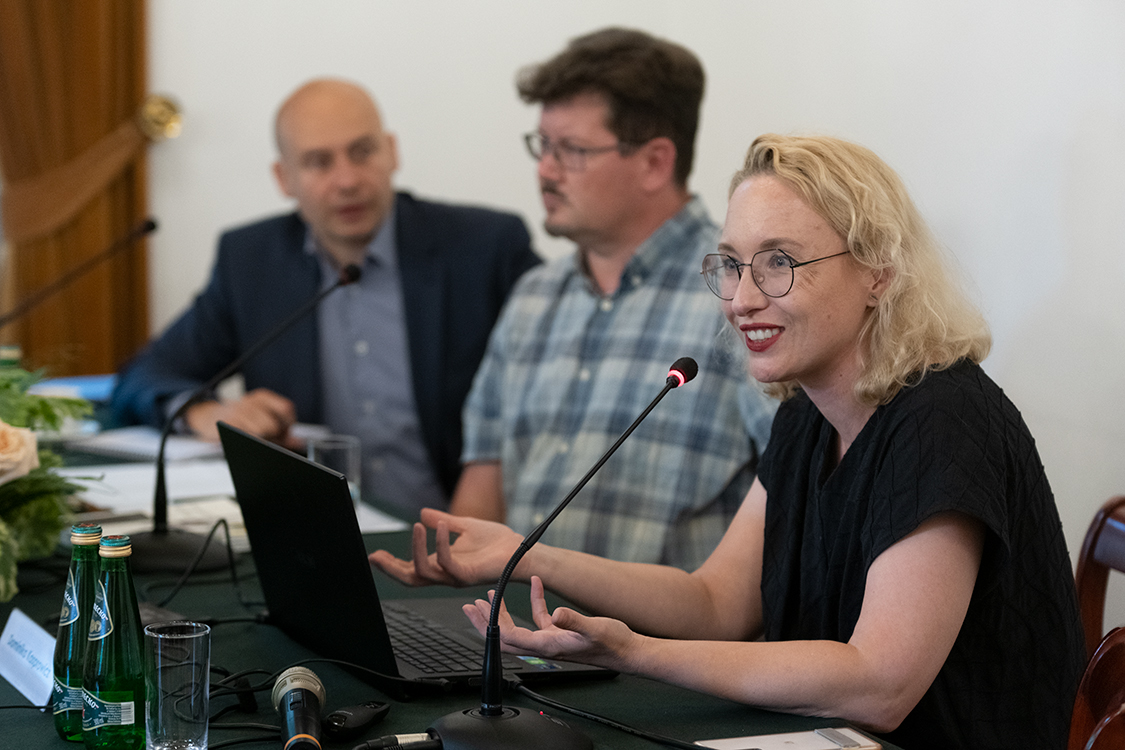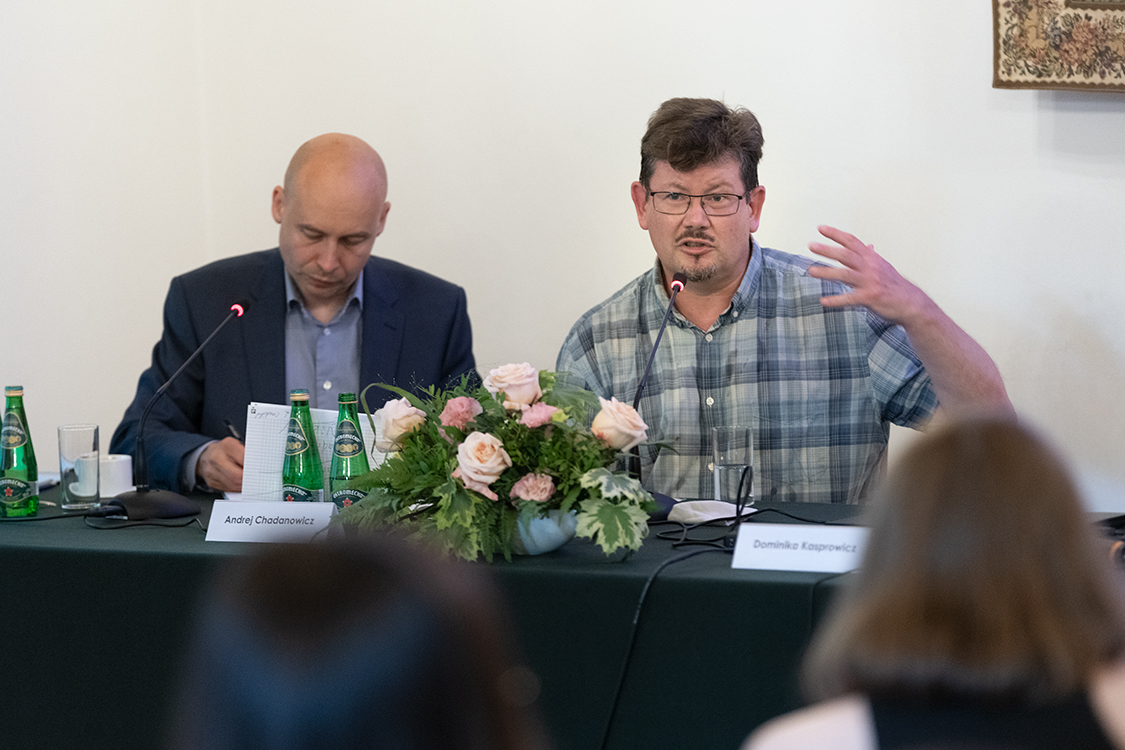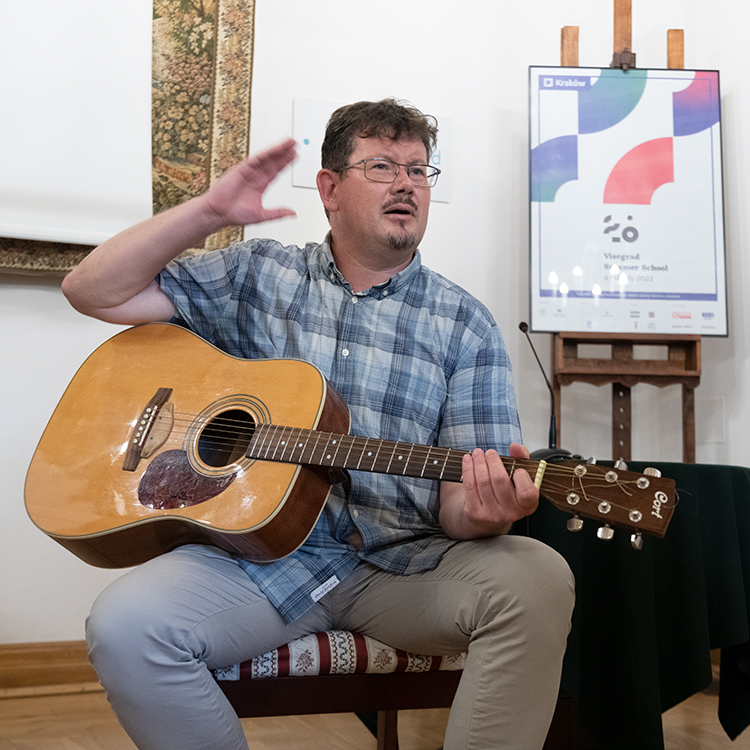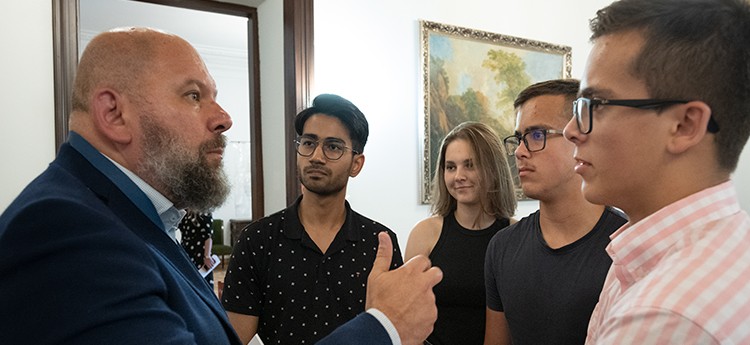
The second day is full of inspirational lecture. We are focusing on many topics starting with geopolitics and going to art and freedom. Have a few glimpses on how this day looked like.
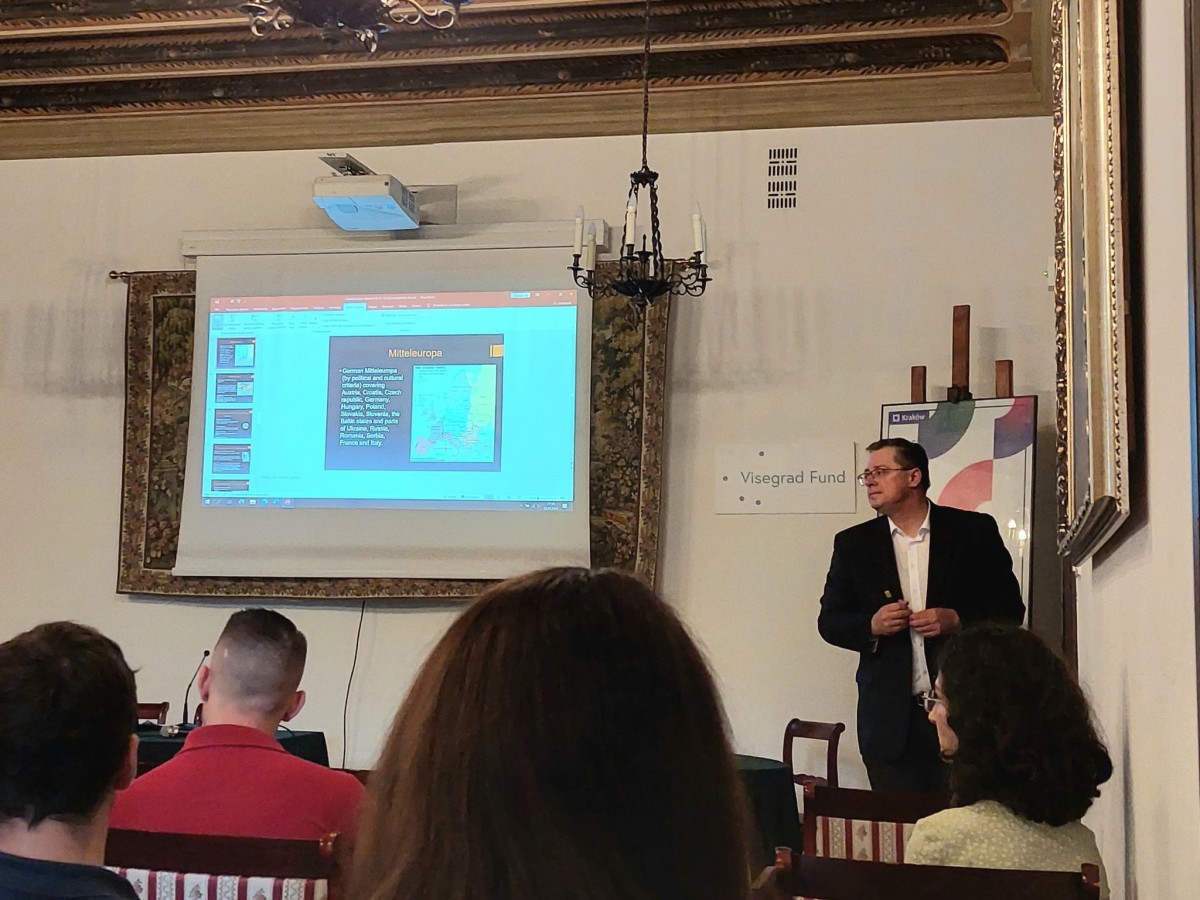
Myth of Central Europe, by Doc. PhD. Michal Vašečka
Bratislava Policy Institute
The lecture was an introduction to the concept and range of the term “Central Europe”, its background since Middle Ages, disappearance, changes, the region during the Cold War and finally since 1989 how it has evolved into institutions like Visegrad Group (V4) today. The lecturer gave an approach to the concept from cultural, historical and social perspectives. He pointed out the importance of “Mitteleuropa” and the influence of German Culture in Central Europe. Also, Doc. Vašečka added the notion of borders and how they have enlarged during time, making them “liquid” possibly considered a “social construct”.
Moreover, the lecturer talked about how the concept was taken back during 1970s with a big emphasis in nostalgia and a negative remembering from being “kidnapped by the soviets”, according to the Czech writer Milan Kundera.
Fast forward 1989 and nowadays, the region clearly shares common history and “values” in regards of egalitarianism, anti-intellectual traditions and lack of trust. The latter has helped to weaken liberal democracies in the region, in favour of un-democratic liberalism, which can be combined with frustration and fear of globalization.
Nowadays, Central Europe can be perceived as an institutionalized entity because of V4, cooperation between Poland, Czechia, Slovakia and Hungary has improved yet remains incomplete, but it is crucial to maintain, improve and deepen it.
Finally, a discussion was carried on by the lecturer and the participants, where they talked about: in what aspects V4 can improve; which is the distinction between East and West in Ukraine; the future of Russia; the return of cities as political powers instead of large centralised states; and the role of Poland in V4.
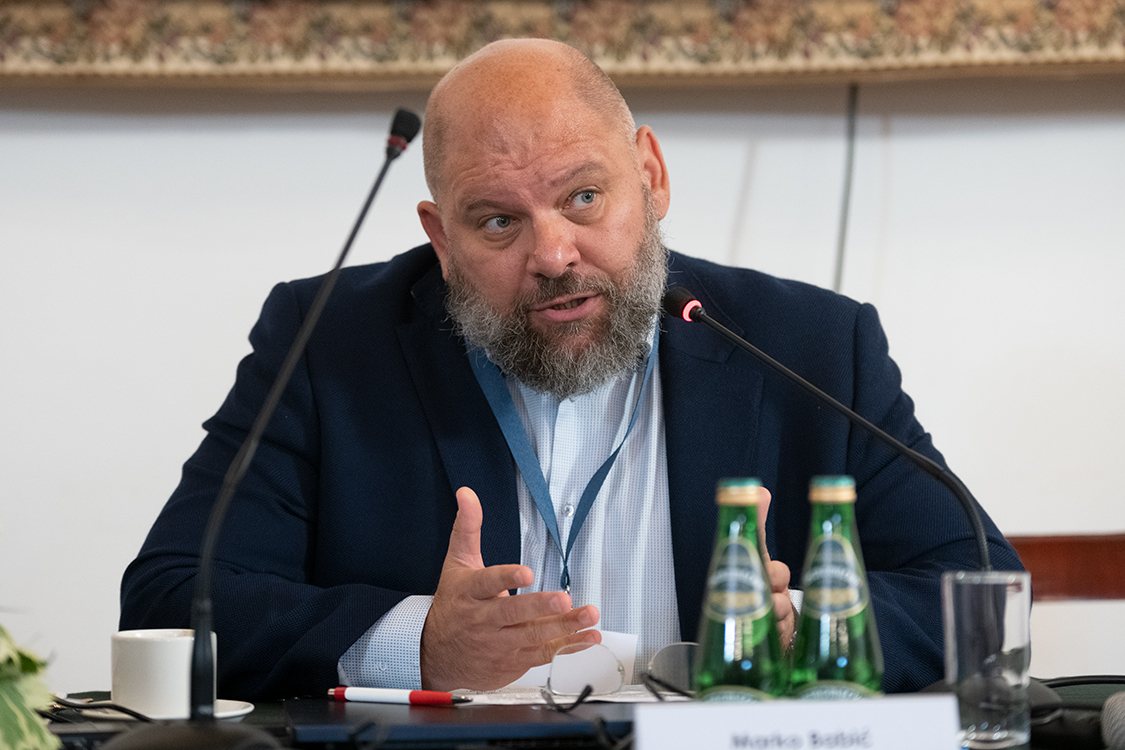
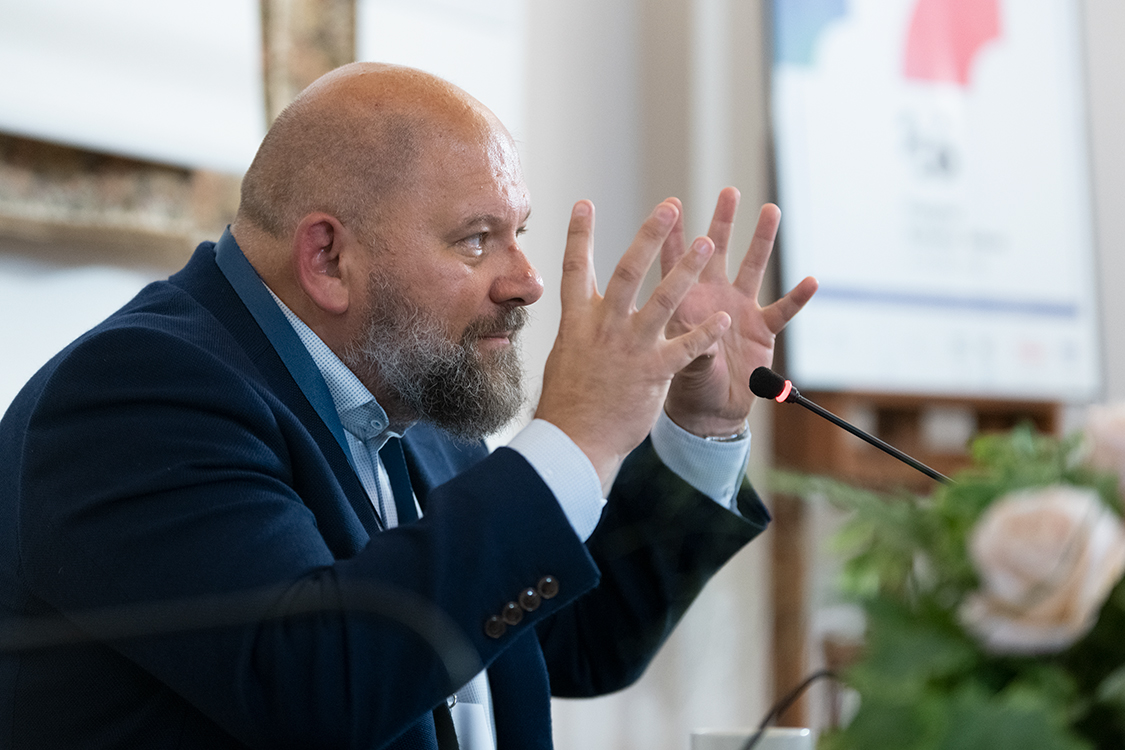
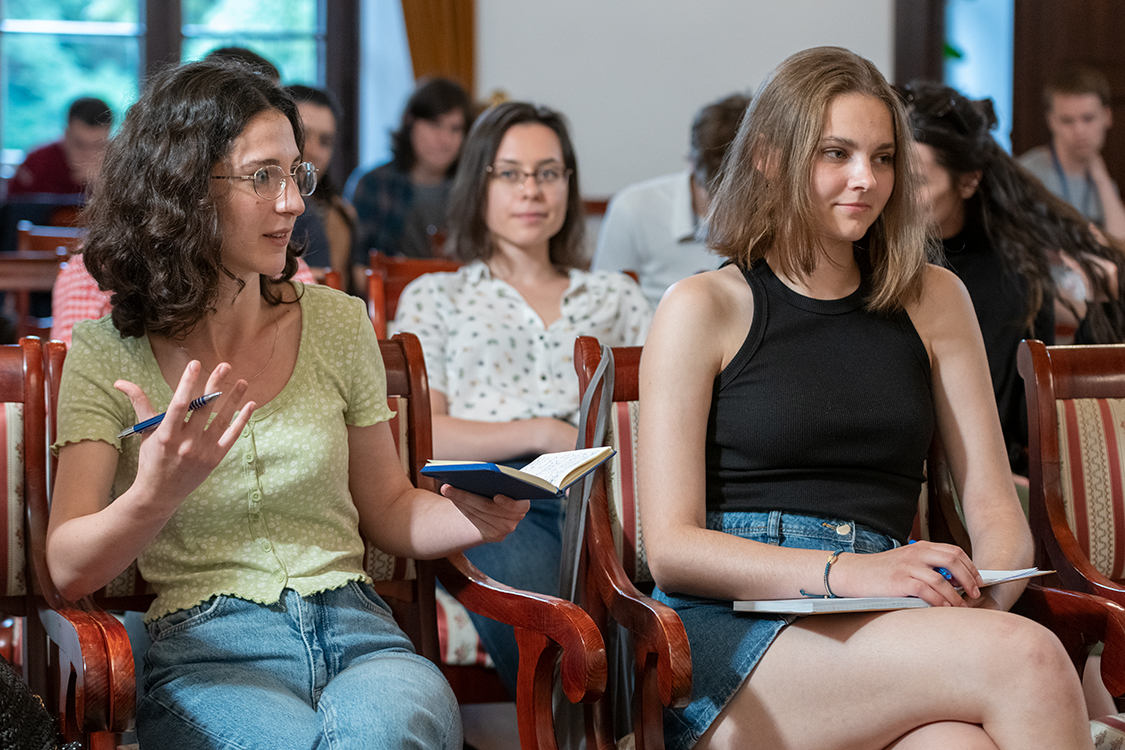
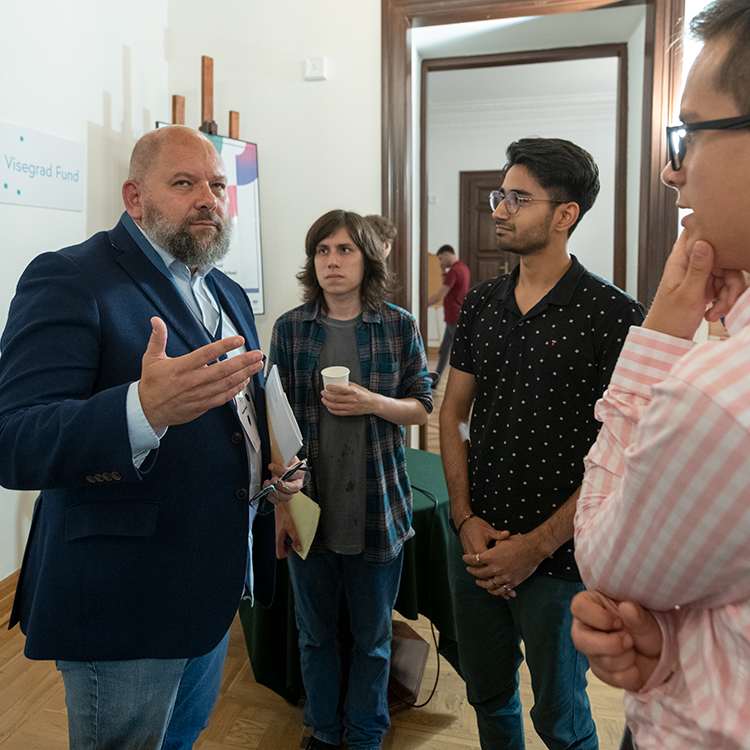
Perspectives for the Western Balkans: Integration? Security? Development?, by Professor Marko Babić, Head of the Department of Eastern Studies in Warsaw University
Although the West Balkans region is under predominantly NATO and EU sphere of influence, nowadays the possibility of joining one of the two is each time less attractive and more distant. This disenchantment and lack of interest is the result of a failed Europeanization explained by three illusion proved to be wrong: integration is the cure of all problems; Transitional Justice; and neoliberal economy that deepened the power of the elites.
The European Union, furthermore, as Professr Babić said, is clashing from inside and need to help herself before helping the Balkans and re-think our reality after February 24. Economy is not the most important aspect anymore, now security and geopolitics are.
The lecturer mentioned the strengths of both Russia and China: they care more about their interests than their values at the moment to make crucial decisions. This stuation is possible thanks to the weaknesses of the Western World. Big powers can put interests over values.
Neither China nor Russia are a shift that the Balkans should take, it seems that EU is the only possibility left, with all its flaws, however this institution should still prove their capacity of engage a geopolitical strategy in the world to be competitive in the future.
The final discussion between the participants and professor Babić was about the de-democratization in the Balkans like in Serbia, Albania. Additionally, the importance of Security as a new core element in the European Union (along with Politics and Economy) and how it has to be tied up with culture; and finally, the potential risk of China becoming the hegemon in the coming years.
Notes on Exile - V4 as a Refuge Space, by Andrej Chadanowicz ICORN Resdent in Villa Decius Krakow
Dominika Kasprowicz, the director of the Villa Decius Association, introduced to the audience Andrej Chadanowicz, a Belarussian poet, translator of poetry, literary critic and essayist. They both presented the Villa Decius Residency Program under the International Cities of Refuge Network (ICORN), which Andrej Chadanowicz takes part of and that aims at securing a place of refuge for writers and human rights defenders who cannot live and create freely in their own countries because of persecutions. The discussion was about the political situation in Belarus and the challenges the artists are facing. To end this lecture, some songs of protests were sang.
